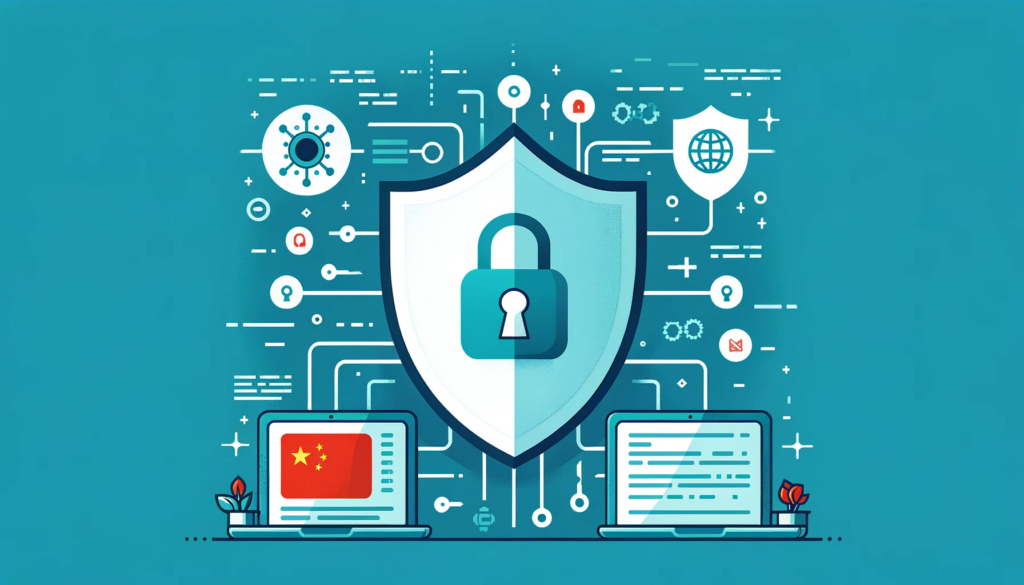
It would be a major understatement to say that the Internet has affected how the world operates. Most of our lives and livelihoods are in many ways impacted by trends that affect how we use the Internet.
As much as use of the internet has made things like financial transactions, educational pursuits, and staying in touch with friends and family much more accessible, having our personal lives spilled onto this information superhighway has also brought with it some unique challenges. Many of those challenges have been unpredictable, and are not discovered until people with bad intentions find a vulnerability and exploit it.
The Benefits of Using A VPN
VPNs Provide Security
Hackers most often target organizations from which they can benefit financially: banks, medical provider networks, and other large companies that stand to lose most from having their data and interactions on the internet watched and exploited. To combat security issues and to provide efficiency among remote offices and people, businesses use virtual private networks, or VPNs.
The demand for security online had put the VPN market on pace to reach over $90 billion by 2026. For businesss, VPNs allow them to secure the highly critical and sensitive business information that is moving across their network. VPNs also provide remote access to employees. VPNs have functionality that allows management roles to control who has access to what information within the company.
Uses for Consumer VPNs
However, businesses and large institutions are obviously not the only ones running into issues with security on the internet. There is a noticeable trend by individual users of the internet towards installing and using VPNs to use when accessing the web for browsing and for several other purposes, including:
- abstracting and encrypting data as it passes between the user and those websites and apps that are being accessed
- hiding the personal information, including location of the VPN user
- avoiding location based restrictions from streaming providers and other content providers (Netflix, ESPN, etc.)
According to a 2021 survey by Security.org, 29% of VPN users say that they use a VPN for personal use only. Another 15% said that they use a VPN for personal and business use (many businesses require VPN usage by their employees, who also tend to use the VPN for their personal online activities), and 24% of the survey respondents said that they use VPN strictly for business purposes.
Consumer VPN Usage Not Just for Security
Use of a VPN for personal online activities is often not a matter of gaining security as much as it is having access to things that wouldn’t be available otherwise. For instance, streaming services such as Netflix make content available only in certain countries, or have other geographical restrictions. Using Netflix with an unblocking service (typically integrated with the VPN provider service) can give a person access to content as if he were in a different country, because VPNs can mask that information from Netflix. Similarly, sports broadcasts and other programs that have regional appeal may be unaccessible except by making it appear to the provider as if you’re accessing their service from a different location.
VPN Can Defeat Censorship

There’re countries where the internet are censored. For example, you might need to find a good VPN for China to visit blocked websites such a Google, Twitter, Facebook and YouTube in that country. There’re even a Chinese word, called 翻墙软件, for this kind of usage of VPNs in China.
The increase of demand in security while accessing the internet along with the added benefit of masking or changing your browsing location make it so that the VPN market is trending towards much more adoption than even in the recent past.
How To Choose A VPN:
There are many VPN service providers around, which makes it hard to choose the best one. I have listed below some of the criteria that you should look for when choosing the perfect service provider for you.
Technical Support
Is it easy to contact them? Are they available 24-7? Are the staffs knowledgeable in technical stuffs? These are just some of the questions you should get the answer for. If you use your VPN connection for work, you cannot afford to lose your VPN connection for a long time.
Reliability
The following questions should be asked by you regarding reliability of service. How many users mentioned the downtime of the provider? Does the VPN connection gets disconnected often?
The VPN Connection’s Speed
Just like your internet connection, you should take into account the speed of the VPN connection. No one wants to wait a long time before web page opens.
The VPN Account Setup process
Because many customers are not familiar with technical matters, the setting-up process of the VPN connection should be simple and easy, and should just take around 5 minutes.
Other Things to Consider
- Make sure to verify VPN Protocols, especially when you are concerned about data encryption. OpenVPN and SSTP are the most secure VPN protocols around. Restrictive firewalls block VPN connections, and if you have this, then the use of a SSL VPN protocol is needed.
- Find out if there’s a limit on the VPN’s bandwidth. You require a big bandwidth limit if you will connect to the web daily, download, or watch videos and movies online.
- Ensure that the monthly fee of the VPN connection is affordable, or at least, worth the service it provides. Price range of VPN connections range from $5 to $30 a month.
The introduction of VPN to the internet world is such a blessing, especially to people who value their privacy so much. Large companies trust VPN service providers to safeguard their company data, and you should too. A private network that has the ability to hide your IP address, prevent access of unauthorized individuals, secures the private data you store in your computer – what more can you ask for?